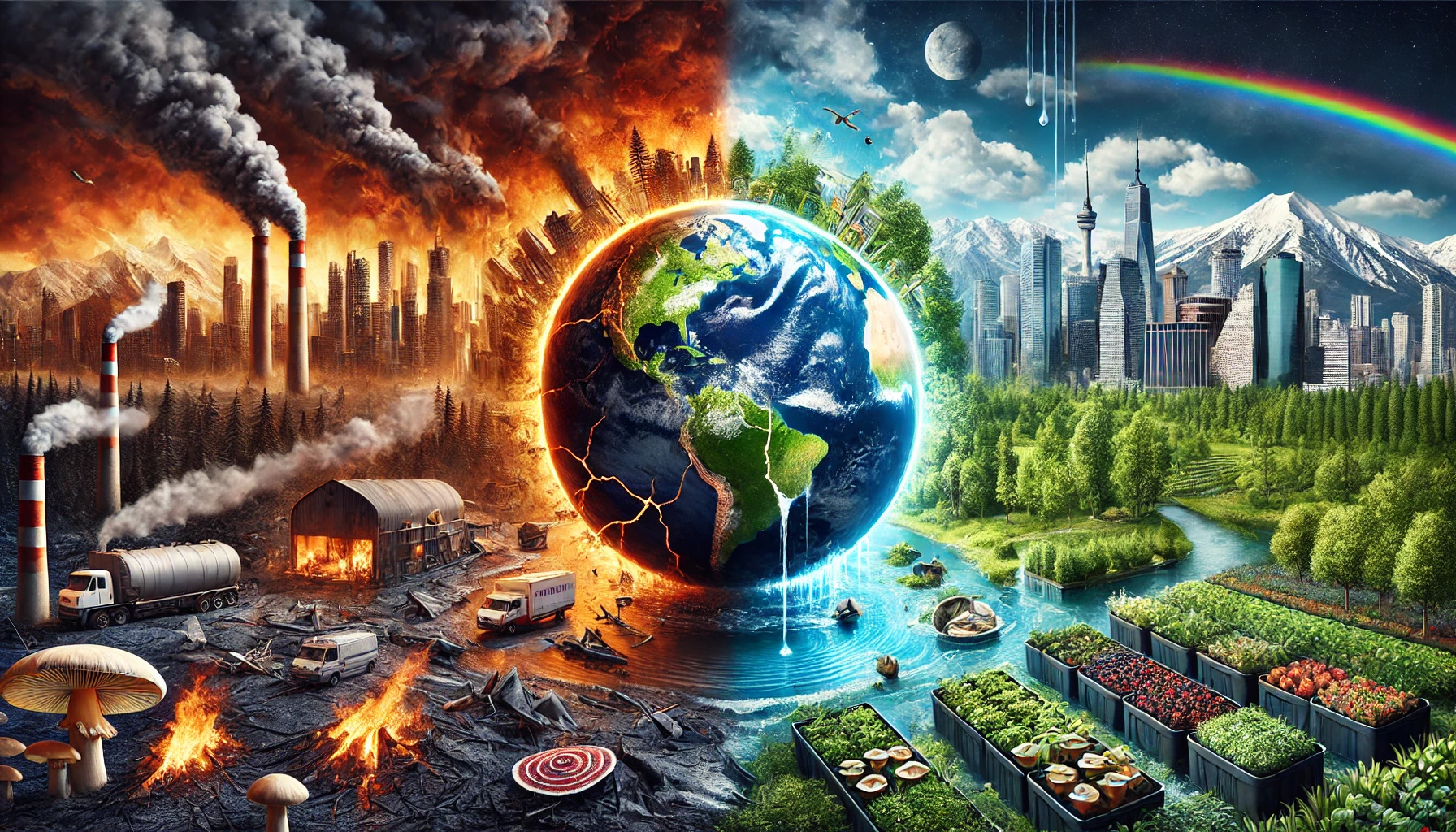
Are We Heading Toward Climate Chaos Faster Than Expected?
If it feels like the world is unraveling at an alarming pace, you’re not imagining it. The climate crisis is accelerating faster than expected, with extreme weather events, record-breaking temperatures, and ecological tipping points arriving sooner than scientists predicted.
- 2023 Was the Hottest Year on Record—And 2024 May Be Worse
Last year, global temperatures shattered records, briefly surpassing 1.5°C of warming, the threshold scientists warn could trigger irreversible climate impacts. Ocean temperatures have also spiked to unprecedented highs, fueling stronger storms, coral reef die-offs, and disruptions to global weather patterns.
- Extreme Weather Is Becoming the New Normal
From devastating wildfires in Canada to historic flooding in Libya, climate disasters are happening with greater frequency and intensity. Warmer oceans are turbocharging hurricanes, while heatwaves are becoming longer and deadlier—affecting millions and crippling agriculture worldwide.
- Ice Melt and Rising Seas Are Outpacing Predictions
The Antarctic ice shelves are collapsing faster than expected, and Greenland’s glaciers are melting at alarming rates. Rising sea levels are threatening coastal cities and island nations, and if ocean currents weaken due to melting polar ice, we could see dramatic shifts in global climate patterns.
- Carbon Emissions Are Still Rising
Despite pledges to cut emissions, global CO₂ levels hit record highs in 2023. Meanwhile, governments continue to approve new fossil fuel projects, delaying the transition to clean energy. At the same time, climate feedback loops—like methane release from thawing permafrost—are accelerating warming, pushing us closer to climate tipping points.
Are We Running Out of Time?
The hard truth? We are dangerously close to losing control of the climate crisis. But it’s not too late—if we act boldly and immediately. Rapid investment in renewable energy, reforestation, regenerative agriculture, and climate adaptation could still slow the worst impacts. Every fraction of a degree matters. The time to act is now.
What We’re Doing at Collaborative for Change
At Collaborative for Change, we’re tackling the climate crisis through three core pillars: Ecosystem Restoration, Community-Centered Projects, and Data-Driven Solutions. We support agroforestry, reforestation, and sustainable agriculture initiatives across East Africa, helping communities build climate resilience while restoring biodiversity. Our data-driven platform empowers projects with cutting-edge tools for monitoring, reporting, and verification (MRV), advancing carbon credit opportunities. By connecting grassroots initiatives with global funding, we’re not just addressing the symptoms of climate change—we’re working at the root.
We’re also launching container farms, starting with mushrooms and berries, and rapidly expanding into aquaculture and biomass production. These scalable, climate-resilient systems will provide sustainable food sources while optimizing land and resource use.
Would you like to learn more about practical climate solutions or how to get involved? Let’s keep the conversation going at www.collaborativeforchange.org.
